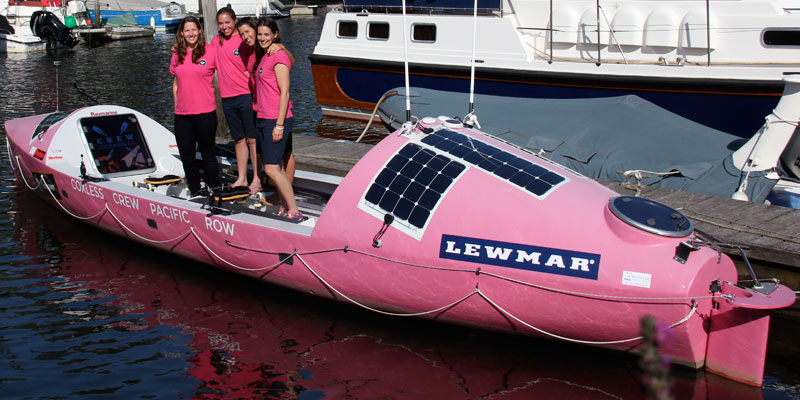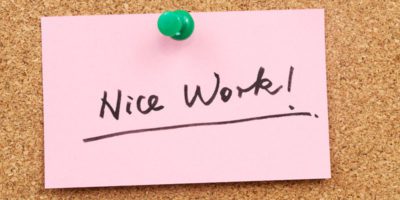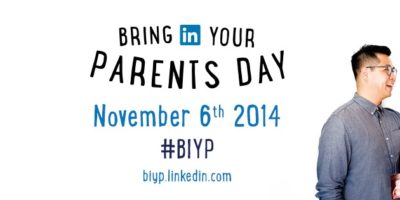Laura Penhaul is Team Lead for the Coxless Crew, a team of women who are currently making plans to row unsupported across the Pacific Ocean in 2015 to raise £250,000 for charity. Alongside this project, Laura is Paralympic Lead Physiotherapist for British Athletics. The team has recently recruited two new members, Natalia Cohen and Izzy Burnham.
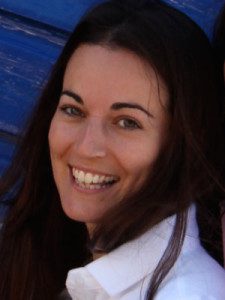
“…Our sponsors are so supportive. We’re passionate about what we want to do and why we want to do it. To see that interest and that passion in people that support us is completely humbling…”
Coxless Crew: Your mission should you choose to accept it
We’re going to be the first all-female fours crew to row across the Pacific Ocean. We’re going from Long Beach in California via Hawaii and Samoa to Cairns in Australia, which will be 8446 miles. We will be setting off in April 2015 and it will take us approximately six months.
It’s all in aid of raising money and awareness for Breast Cancer Care and also for the injured servicewomen who were injured in combat in the war and are now supported by Walking with the Wounded. We’re doing it to create a platform to support those that have overcome adversity and shown huge mental strength to create a new positive life journey for themselves.
Digging deep and facing our fears. Not giving up when times are tough
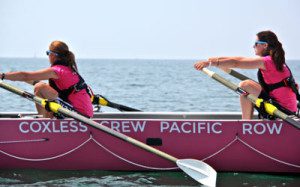
The routine is that there’s only ever going to be two people that can row at once. So there will always be two people rowing whilst two people rest or do the navigation or look after their hygiene personal requirements and also boat maintenance, as there’s usually a fair few jobs to do once you’re off the oars.
It’s around two hours on and two hours off. By the time you’re got off the oars and you’ve had some food, you might have to have a quick wash and then you conk out for an hour, then you’ve got to get yourself back up to be prepped to be back on the oars again. It’s just getting into that routine and making it as slick as possible.
Pulling all the elements together
The recruitment process for the new team members has been one of the most interesting parts for the whole process. The recruitment was crucial in that what’s going to make this a successful expedition is purely down to the team and the dynamic. It’s extremely difficult to pull all the elements together, because the whole row in itself is two elements.
It’s getting to the start line, which is pretty much like setting up a business, and then it’s what you do when you’re out on the water.
Self de-selection as important as selection
Previously we’d put an advert out, which was quite a detailed specification of what we were looking for and what people were signing up to, so we gave people the opportunity to pretty much de-select at the very front end and also throughout the early part of the application process. What we thought was going to be about us selecting was more about people de-selecting.
I think sometimes that the harder and more respected thing to do, is to self de-select rather than to try and stick it out if you’re not 100% committed and happy with the decision.
And then there were 12 – stress tolerence
From the applications we then selected 12 people who came to Bisham Abbey where the GB rowers train to meet our conditioning coach Alex Wolf, who was the lead strength conditioning coach for GB rowing When we were there we had Alex doing the strength and conditioning basic assessment. We also had our team sports psychologist, who is Keith Goddard, who’s an absolute godsend.
He did a brief stress tolerance test with the girls and then we separated out with Fergus Scholes of Atlantic Polo team. It was less than two months after he’d successfully crossed the Atlantic as a fours team, so he did a great talk to the girls and showed photos of what life is like at sea in an ocean rowing boat. I think that helped to put things in perspective.
We also had Dale who does a bit of filming with us doing individual interviews with each of the girls so they could get a bit of an idea of what it is like to speak to camera.
Knowing your ‘hot buttons’
Then Emma and I split up into separate teams. Emma did a team review looking at what people’s three ‘hot buttons’ are; what gets the best out of them and what gets the worst out of them and sharing that within the group so we could learn what other people’s positives and negatives are, so they got used to sharing it and understanding each other.
It was an excellent exercise to highlight people’s different traits. I love being in an environment of positivity around me and understandably there are going to be things that are negative. If somebody is constantly negative for days and weeks going on, it then tends to have a negative impact on the rest of the team.
Role reversal
Then I did an interview with each of the girls and I role reversed it so they would get a chance to get to know me and interview me instead as I’d obviously seen their application forms, but they didn’t know much about me, so that gave it a bit of an open platform.
So that was stage one and then off the back of that we invited everybody to come down to the boat a different time, so they got to see the boat and go out for a row. Half of the group rowed over to the Isle of Wight with us for the round the island race and then slept on the boat and then rowed back, so they had a good nine hours of rowing and rotating, so they got to have a feel of what the boat’s like and the manoeuvrability around it.
And then the final stage was a trip to the Breacon Beacons in Wales with a company called Fieri FrontLine. The men who have set that company up are all ex-Parachute Regiment army men. Martin Hewitt was injured in the war, so that’s what took him out of service but is also how I met him through Paralympic Sport.
Army principles of teamworking and leadership
Martin and his team, set this company up that applied army principles of leadership and teamwork to the corporate management environment. They put us through our paces by taking us out on the Breacons. It was a good 24 hour stint where they gave us maps and then they supported us from afar, but we were basically out on our own. We had to navigate from A to B and then when we got to B we then had to do a team task.
So it would be things like, “You’ve got to get tank A to tank B, but you can’t mix the two tanks and you can’t drop it or do this, this and this.”
Four different leaders
I asked each of the girls to be leaders on different tasks. We had seven tasks in total and it was all about giving them an understanding of what a leadership role looks like, even if they aren’t naturally a leader. From our perspective when we’re in the boat we’re all going to have to lead on different things at different times.
Decisive decisions
So say if I’m sleeping and somebody else is out on the oars, they’re going to have to make decisive decisions, so it’s giving us all the confidence and the understanding of how to do that. That was an amazing process and we covered 66kms in less than 24 hours. By the end of it everybody was totally fatigued and hadn’t slept.
Everybody was aching and their feet were sore, but the amazing thing was that even getting to the end of that last task where we were all, including me, pretty much collapsed on the floor, they then threw in that we had to get all of the equipment back to the accommodation.
Collapsed at the finish line
We only had a small amount of time to do it, which meant that we had to run with it, so we had our own back packs, hiking shoes and stuff, and even though we were limping and pretty much collapsed at the finish line, somehow or other we just got that sense of urgency and we all sprang up to life and the next minute we were running!
I remember running and saying out loud, “I don’t know where this is coming from. I couldn’t walk two minutes ago and now I’m suddenly running!” It was an amazing experience that pulled the team together. It then gave us a pretty tough decision of who was going to be in the team.
That’s also where our psychologist has done psychometrics with the girls, so it was about pulling together how everybody interacted on the day and then who would fit well with getting to the start line and who would fit well in the team.
The hardest thing from my perspective is that sometimes you get drawn to a similar personality, but it’s identifying what’s right for the team and not as an individual. So the process has definitely highlighted the importance of diversity within a team and it’s great to see how strong that is, everyone has got something different to contribute and take ownership of.
Meet the new team members – Izzy and Natalia
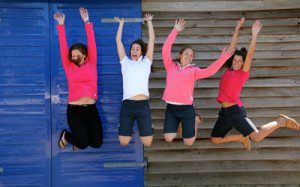
Then we’ve got Natalia. She’s got a wealth of experience. She’s older than us all, but she’s like the biggest kid out of all of us. She’s just a general legend as she’s such good fun, but she reads the team well and she’s got a great personality to keep a sense of humour, whilst also being proactive in getting things done.
Diversity brings complimentary skill sets
Diversity definitely makes a difference. I was a little bit nervous about it thinking I’d get drawn more to people who are quite extrovert and outgoing, but then as I’ve gone through the process over the last two or three years it’s made me aware of the beneficial impact of other people’s personalities within the team.
For instance, Emma will be slightly quieter, but she gets the job done. She’s head down and she cracks on with stuff and doesn’t complain about anything. It’s that softness that impacts on the whole team and you can have that bit of quiet time as well without me being ‘chat chat chat chat chat’.
You’ve got somebody who brings the fun element to the team as well, so it doesn’t stay too serious and structured. Then you’ve got someone else who brings that structure to make sure we’re delivering, so it’s nice to see it working well.
Passionate and humble
The companies that have helped us have been absolutely amazing. I can’t fault any one of them. Our boat is fully equipped and that’s thanks to all of our key sponsors. We’ve searched to approach the best companies we can work with.
We’ve got the top end spec that we can have on that boat, from the solar panels to the lithium battery, to the ropes, literally into the hatches and all sorts of pieces of kit. Our sponsors are so supportive. We’re passionate about what we want to do and why we want to do it. To see that interest and that passion in people that support us is completely humbling.
Recent sponsor support
Angela Sykes-Brown, businesswoman and owner of Claritas Solutions Ltd, is a close friend of Natalia’s. As soon as Natalia told her about the row, she was just so proactive and enthusiastic and has been ever since. She said, “Without a doubt, we’ve got to make sure that this happens. I’ll support you in any way I can.”
Natalia expressed the fact that we still need £100,000 cash sponsorship to get to the start line and straight away she donated £10,000, which was completely out of the blue and unexpected. She said it one day and the next day it was in the bank account. After chasing money for three years it was unbelievable. It’s awesome to suddenly have than money in the account to cover the essential that you need to pay for.
She’s done more than that too. She’s made some great connections and she’s got some brilliant ideas about how to support us as well. There are plenty of other people who have been just as supportive with their time and efforts, but it might take up the whole article if I listed every single person!
It’s all a joint effort through the charities, through the sponsors and just people that you meet. It’s been amazing. There are still some outstanding costs that we need to cover so we’re still looking for sponsors to be part of this, to share the ethos and the passion that we have for it so it can be a big collaborative approach moving forwards.
Timetable
The timetable now leading up to the row aims for us to launch from America in April from Long Beach, California. Prior to that the next step is the week of the 6th of October, we’re going to be down in Plymouth with a company called Survival Wisdom for 2 days and then in Falmouth for the remainder of the week.
Survival Wisdom are kindly doing a bit more intensive survival training with us. We’re spending two days where we’re going to be out at sea, figuring out how we would get to our life raft in rough seas and wind. So they’ll dump us out in the sea, which is great!
[Wo]man overboard
We’ll also be doing man overboard drills, so we’ll have the boat down there and do some capsize drills. They’re also going to be helping us out with the set-up of the boat and where to put equipment and making things like they’re second nature and so in case of emergency you just know you’re going to grab the bag, grab the life raft and everybody’s got their roles and responsibilities in that situation.
Ready to launch
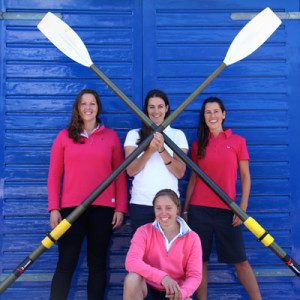
We’re hoping to involve some of the media down in Cornwall and the South West as they continue to promote what we’re doing. Then hopefully in November, just after the heads race we’re hoping to get the boat down on the Thames and on the tideway, again so our sponsors can see it and come and be part of that launch.
Before we go we’d like to do a launch in February / March time to activate our charities and raise some significant money through doing some auction work with them before we leave.
The row will take us about 150 odd days, so just over five months and we can’t wait.
https://twitter.com/coxlesscrew
https://www.facebook.com/crew.coxless

